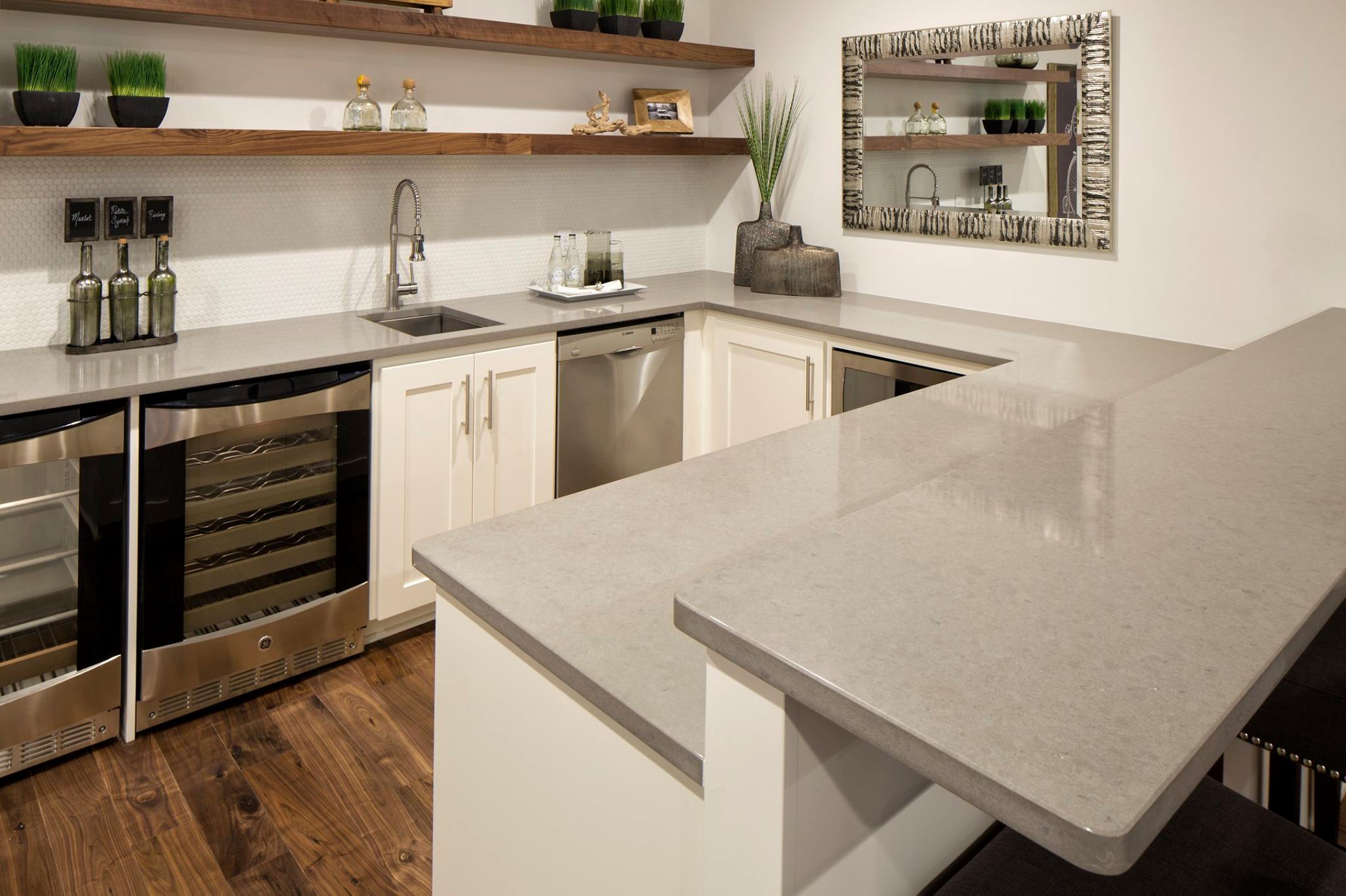
Quartz countertops Pros & Cons
Quartz is the one of the most popular countertop surfaces and is quickly outpacing granite as the stone of choice for kitchens, toilets, and powder rooms and many other spaces.
Quartz, as a manufactured product, can have a wider variety and selection of colors and inherent textures than available in natural stones. Quartz also has the same durability as concrete and granite but is much more forgiving; thereby surviving cracking and chipping much more than granites. Here are Quartz countertops Pros & Cons.
Quartz countertops Pros & Cons in Omaha, Nebraska
Quartz remains competitive in its pricing and does not have tremendous variance across its selection. Although slightly more expensive than granite, quartz prices do not change as much as it does across the rarer and more exclusive options in granites.
Durability
Quartz, being non-porous, can survive:
- oils
- juices
- wine
- coffee
- other heavy staining fluids/materials and is very easy to clean
Due to its non-porous nature, it is also anti-bacterial and resists growth of viruses.
Sunlight
One drawback of quartz that it can discolor over time when exposed to direct sunlight. If part of your counter receives strong UV rays from the sun while another part doesn’t, over time you may see a color difference.
You can expect to see seams with a quartz counter but they will be less visible if you choose a slab that’s darker in color.
GOQ Countertops Omaha
GOQ recommends using quartz countertops if you are looking for an upgrade and do not wish to deal much with maintenance and upkeep. Our showroom has a wide selection of colors and patterns and we provide service across the greater Omaha area.
- Category :
- Type :
